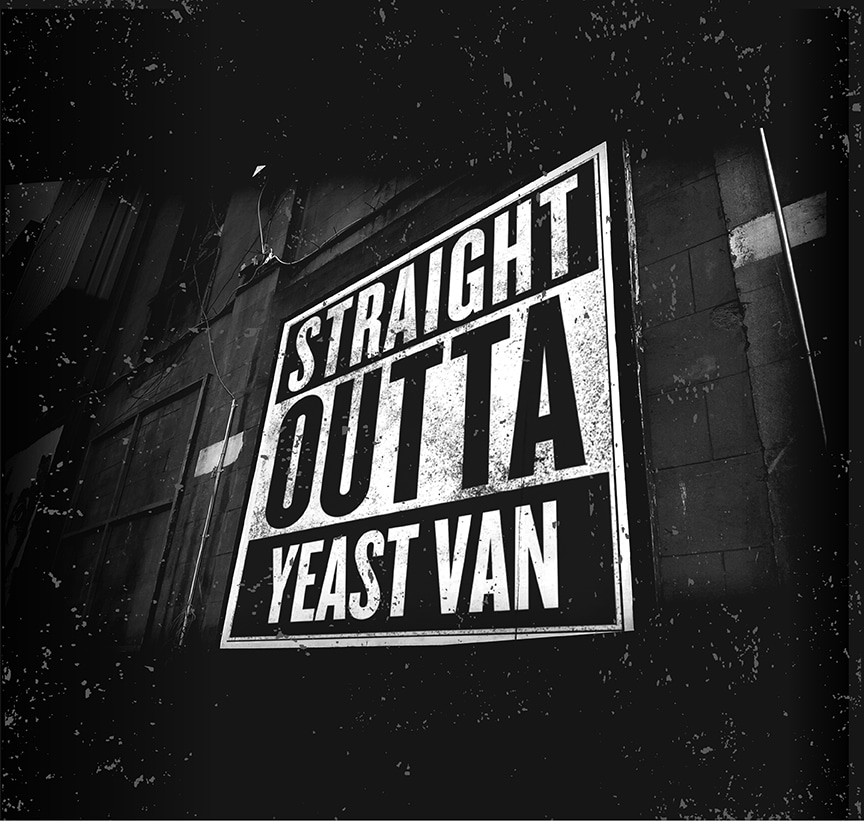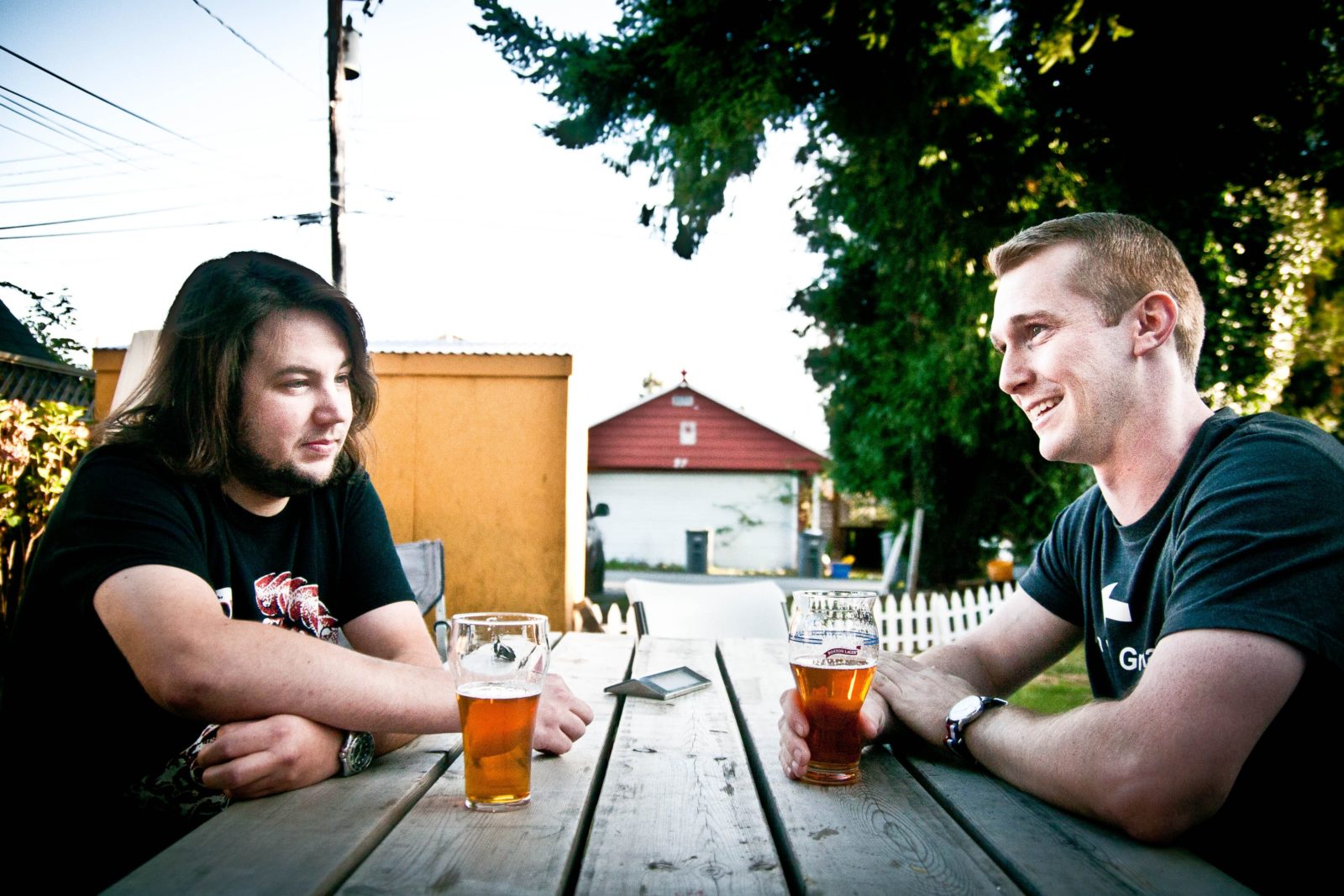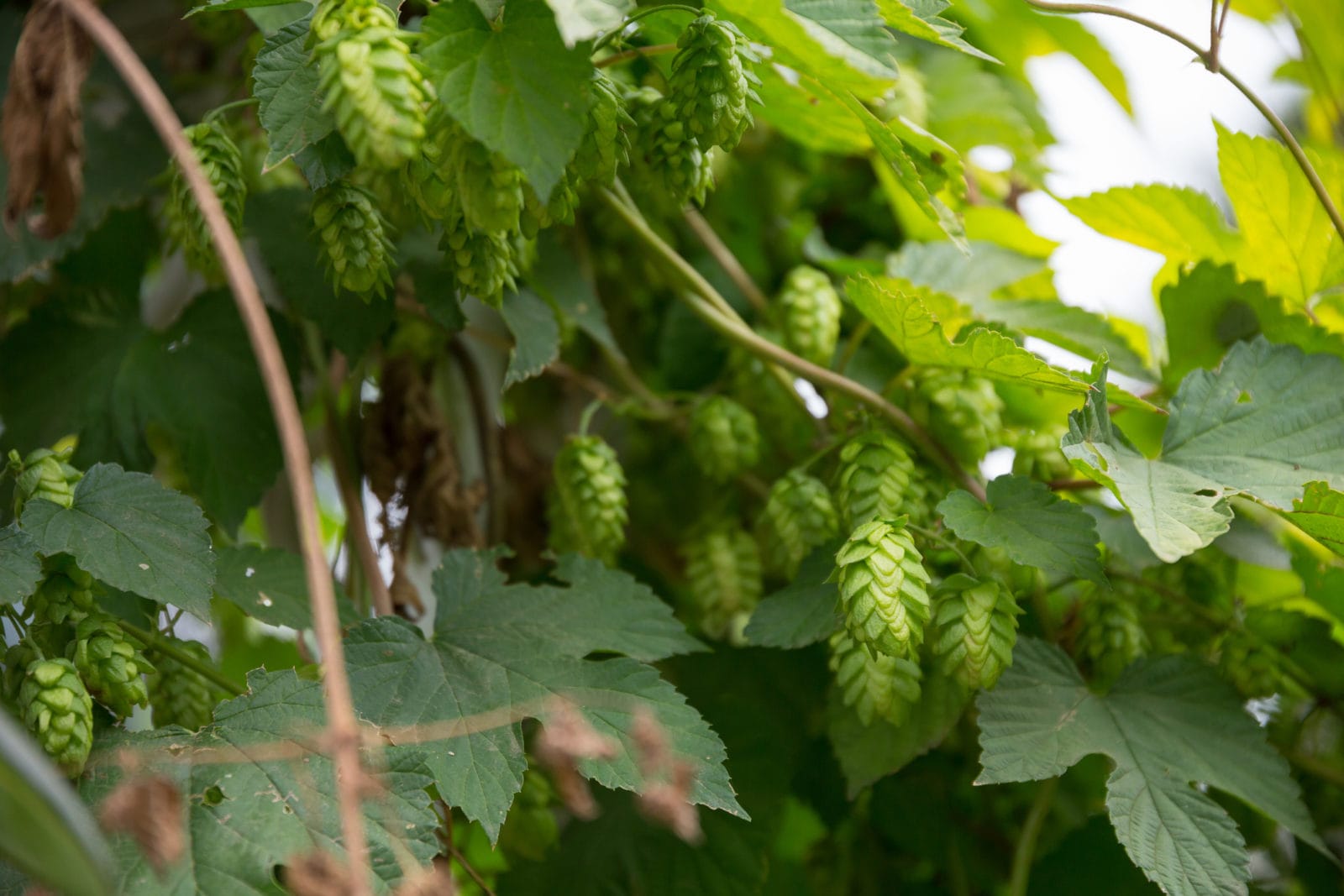
Earlier this year, scientists at the University of California Berkeley published a research paper that documented their discovery and success in the creation of lab-constructed yeast that could mimic the flavours of natural hops in beer. Why? Well, hop plants are thirsty buggers, soaking up an average of 50 pints of water, for just one pint of beer.
You might think such advancements are drivel, but in terms of water usage, the creation of genetically engineered brewer’s yeast is meant to aid the growing beer industry, offering a more sustainable approach to brewing. And for the giants of the beer brewing industry that already use genetically-modified organisms (GMOs) in their brews—Budweiser, Pabst Blue Ribbon, Corona, and Guinness to name a few—it’s quite possible that a GMO yeast, said to mock the scent and flavour of natural hops, might come in handy one day.
However, craft breweries here in B.C. aren’t entirely sold on this innovation. Brewers and beer drinkers alike are kindred in their ethics toward food and beverage consumption: as it turns out, buying local isn’t just a trend reserved for West Coast yuppies. B.C. is a province rich with natural resources and organic farms, and the drive to source ingredients locally has fueled our province’s sustainable farming industry through craft beer and otherwise.
Even East Coast brew houses are making the switch: Mill Street Brewing announced in July that all six of their year-round core beers will be certified organic. According to Mill Street’s head brewer Joel Manning, this step pushes Mill Street’s total output to roughly 90 per cent in organic products.
Back to the University of California Berkeley hop experiment: while the study, published in Nature Communications, cites that the yeast, created by “incorporating recombinant DNA derived from yeast, mint, and basil,” accurately replaced the scent and flavour of a natural hop, UBC food scientist Vivien Measday, associate professor at the Wine Research Centre, doesn’t think it’ll end up in your pint just yet.
“I think the main reason that this experiment won’t take over the beer industry any time soon is that this yeast strain can give off an interesting aroma but it can’t provide [the same kind] of bitterness and it can’t generate microbials,” she says. “And if they don’t have the naturally-grown hops in there, they may need to find another way to stop spoilage organisms from growing. Because beer is generally only five per cent alcohol on average—which is not that high—other organisms can grow in there. Like lactic acid or [acetic acid bacteria]. And this yeast strain is not going to be able to deal with that problem.”
Measday adds that the GMO ingredient most likely to land in your beer isn’t as worthy of a flashy science experiment—it’s corn.
“GM corn is approved in Canada and the U.S., and it is definitely possible that the corn syrup in beer is derived from GM corn plants, but in Canada there is no requirement that companies have to label their corn products as GMO,” says Measday.
Adjuncts like genetically modified corn and corn syrup (along with GMO rice, fish bladder for clarifying, and GMO sugars) are indeed likely to land in the beers made by the larger, more corporate brew houses, but local craft breweries in B.C. are doing their best to keep their ingredients kosher, and for some, entirely organic.
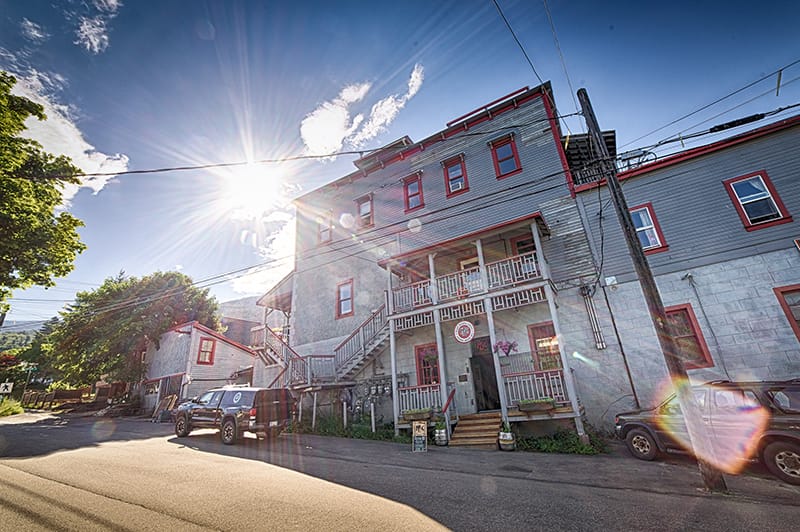
Nelson Brewing, located in the heart of the West Kootenays, was founded in 1991 and has been operating as a certified organic brewery since 2006. Its award-winning lineup of organic beer can be found across Western Canada.
“When Nelson Brewing made the choice to switch to all organic, it was largely due to our market here in the Kootenays,” says Nelson Brewing’s head brewer Simon Barna. “It’s a pretty organic and sustainable farming-driven community in Nelson, so it was certainly influenced by the ingredients that the people of Nelson want in their products. They don’t want GMO and they really appreciate non-GMO products.
“I’ve visited quite a few of our hop farms, and it’s really cool to see the research that’s going into organic farming. Hops are the number one sprayed crop because they’re so susceptible to aphids; so these mass organic hop farms that are starting in the Fraser Valley are giving breweries more options,” he adds. “We really try to stress the importance of supporting organic farming processes and the research that goes into it, and we hope that part of it becomes more mainstream.”
Vancouver’s Dogwood Brewing, an organic, vegan brewery, opened its doors in March 2013. Just like Nelson Brewing, Dogwood’s philosophy is deeply rooted in the desire to help sustain local organic farming practices. The general concern isn’t so much in the dilemma of water usage when it comes to hop farming, and brewing in general, but more so in their mission to create an impact in the beer market by supporting local producers. Dogwood’s hops are certified organic and Salmon Safe, grown by the Harvesters of Organic Hops (HOOH) in Lillooet, and to keep their beer vegan, the Dogwood team uses vegan fining agents when clarifying their beers so that no animal products are necessary.
“I think the most important craft beer movement in B.C. is not about chasing these crazy varieties of hops but supporting our local farmers,” says Dogwood Brewing co-owner Claire Wilson. “It not only cuts down on the impacts environmentally, but it means that we’re building something for our future and for our province.”
Beer is steeped in tradition, she says, and when brewers are looking to create something wonderful and innovative, most try to find something rare or obscure to create unique flavours.
“Although innovation is exciting, I don’t see something like a genetically engineered hops becoming a big trend for craft beer anytime soon. Hopefully.”
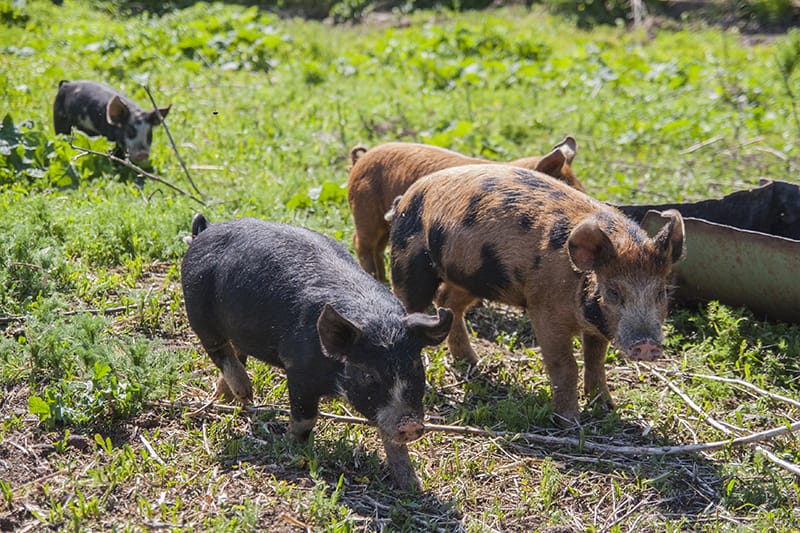
Crannog Ales, a small organic brewery in Sorrento echoes Wilson’s sentiment. For nearly 20 years, Crannog’s farm and brewery concept (helmed by Brian MacIsaac and Rebecca Kneen) has been operating in tandem, generating an entirely sustainable system on its own property at Left Fields farm. Crannog grows its own hops, greywater is used for irrigation, spent grains feed the livestock or are composted, and so on.
“My perspective on GMOs in general is that it’s a solution in search of a problem,” says Kneen. “The bottom line for me, is not so much on the effect on human health, or on the quality and flavour of the beer. The issue around the concept of genetic engineering is the purposes behind it and the effect on the environment; it increases the degree of toxicity on the planet, and that alone has a direct effect on human health, regardless of what product you’re consuming.”
For these brewers, a commitment to buying and supporting local isn’t performative, and it isn’t about following a trend. Their efforts are about supporting community, minimizing the toxic footprint of craft brewing, and in turn, making great beer GMO-free.
“For me, why we chose this is that we wanted to look back in 20 years and be really proud of the decisions that we made,” says Wilson. “Every brewery that buys local B.C. hops, and every brewery that supports the local industry, builds something fantastic for our province and in turn, this effort protects our rivers, our soil, and our wildlife.”


